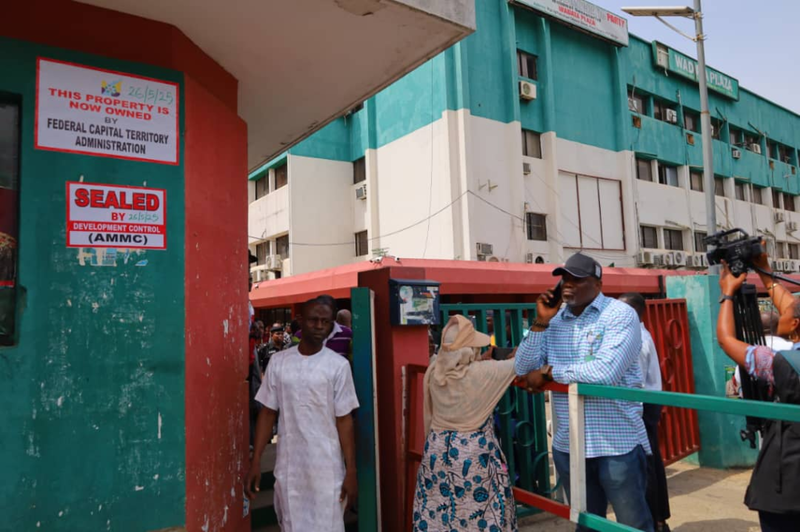
The Peoples Democratic Party (PDP) has strongly condemned the Federal Capital Territory Administration’s (FCTA) decision to seal its national secretariat in Abuja over 28 years of unpaid ground rent, calling it a brazen abuse of power and a reckless attempt to undermine democracy. Following the sealing, the party’s leaders declared their readiness to be arrested if the government continued what they described as harassment over the rent issue.
The emergency caucus meeting, held at the Bauchi Governors’ Lodge after the secretariat was sealed, saw Acting National Chairman Umar Iliya Damagum criticize the move as unacceptable and a clear example of government irresponsibility. He warned that the party would not tolerate further provocations and was prepared for any consequences, including arrests.
However, the PDP and other affected property owners received a temporary reprieve when President Bola Tinubu intervened, granting a 14-day grace period for defaulters to settle outstanding ground rents and associated penalties. The FCTA specified that penalties would range from N2 million to N5 million depending on the property’s location, in addition to the owed rent.
The sealing of the secretariat forced the PDP to relocate its operations to the Bauchi Governors’ Lodge, where the party’s Board of Trustees (BoT) and other key leaders began closed-door meetings to address both the shutdown and escalating internal crises. Much of the internal tension centers on the role of FCT Minister Nyesom Wike, who recently withdrew from peace talks and accused other party leaders, including Oyo State Governor Seyi Makinde, of dishonesty and undermining reconciliation efforts.
The PDP’s leadership has vowed not to back down, describing the government’s action as political intimidation and a threat to Nigeria’s democratic future. The party is expected to issue further statements after its ongoing meetings and has established a committee to report on the situation and recommend next steps. The episode has sparked widespread concern among party loyalists and civil society groups about the use of state institutions for partisan purposes and the overall climate of political intolerance in the country.






